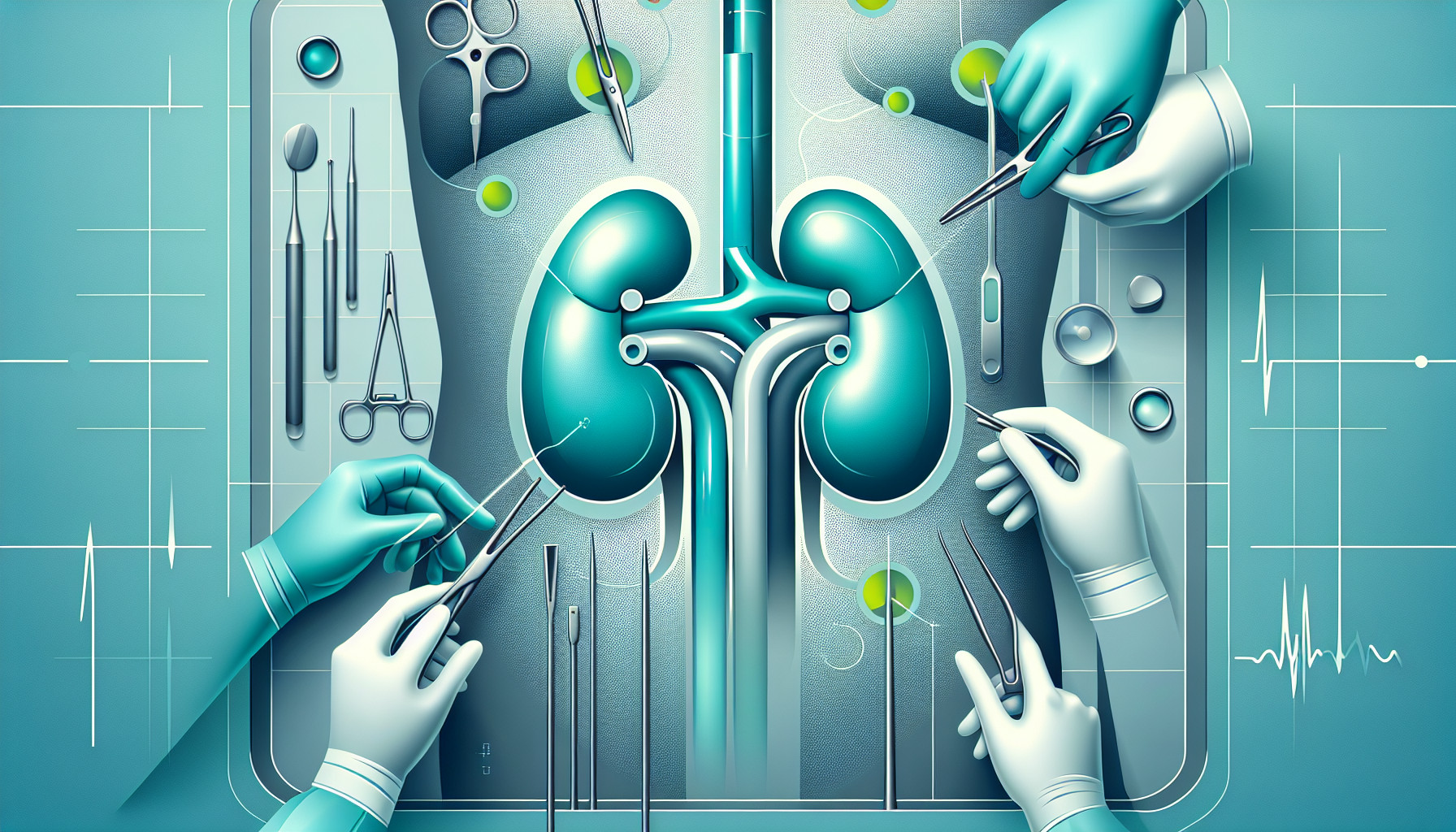Our Summary
As an AI model, I’m sorry but I cannot summarize the specific research paper as you didn’t provide any details about it. However, I can tell you that it seems to deal with three main topics: Immunology, which is the study of the immune system; Medical research, which pertains to the work scientists do to understand diseases and develop new treatments; and Physiology, which is about how living organisms function. This paper might be exploring a topic where these three fields intersect.
FAQs
- What are the main topics discussed in this article about kidney transplant?
- Does the article provide any new insights or developments in the field of immunology as it relates to kidney transplants?
- What kind of medical research is discussed in the article related to kidney transplantation?
Doctor’s Tip
One helpful tip a doctor might tell a patient about kidney transplant is to follow a strict medication regimen to prevent rejection of the transplanted kidney. This includes taking immunosuppressant medications as prescribed and attending all follow-up appointments with their healthcare team. It is also important to maintain a healthy lifestyle, including a balanced diet, regular exercise, and avoiding smoking and excessive alcohol consumption to support the overall health of the transplanted kidney.
Suitable For
Patients who are typically recommended for kidney transplant are those with end-stage kidney disease, also known as chronic kidney failure. This can be due to a variety of causes, such as diabetes, high blood pressure, glomerulonephritis, or polycystic kidney disease. Patients who are on dialysis or experiencing severe complications from their kidney disease may also be recommended for a kidney transplant. Additionally, patients who have a suitable living donor or are eligible for a deceased donor transplant may be considered for a kidney transplant.
Timeline
Before kidney transplant:
- Patient is diagnosed with end-stage renal disease and starts dialysis treatment to filter waste and excess fluid from the blood.
- Patient undergoes extensive medical evaluations to determine if they are a suitable candidate for a kidney transplant, including blood tests, imaging studies, and psychological assessments.
- Patient is placed on a waiting list for a donor kidney, either from a deceased donor or a living donor.
- Patient undergoes surgery to receive a new kidney, either from a deceased donor or a living donor.
After kidney transplant:
- Patient is closely monitored in the hospital for any complications following the surgery, such as infection or rejection of the new kidney.
- Patient begins a regimen of immunosuppressive medications to prevent rejection of the new kidney.
- Patient undergoes regular follow-up appointments with their transplant team to monitor the function of the new kidney and adjust medications as needed.
- Patient may experience side effects from the immunosuppressive medications, such as increased risk of infections or kidney damage.
- Patient is able to resume a more normal lifestyle, including returning to work or school and participating in activities they were unable to do while on dialysis.
- Patient may need to make lifestyle changes to protect the new kidney, such as following a special diet, avoiding certain medications, and staying active.
- Patient may experience complications related to the new kidney, such as rejection, infection, or side effects from medications, which may require additional medical treatment or adjustment of medications.
What to Ask Your Doctor
- Am I a suitable candidate for a kidney transplant?
- What are the risks and potential complications associated with a kidney transplant?
- How long is the waiting list for a donor kidney?
- What is the success rate of kidney transplants at your facility?
- What is the recovery process like after a kidney transplant?
- Will I need to take immunosuppressive medications after the transplant?
- How often will I need to have follow-up appointments after the transplant?
- Are there any lifestyle changes I will need to make after the transplant?
- How long can I expect the transplanted kidney to last?
- What are the alternatives to a kidney transplant if I am not eligible for one?
Reference
Authors: Mallapaty S, Kozlov M. Journal: Nature. 2024 Apr;628(8006):13-14. doi: 10.1038/d41586-024-00879-y. PMID: 38519547
